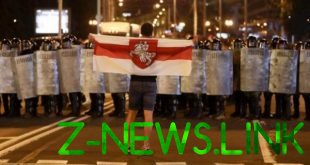
The foreign Affairs Committee of the Senate of the U.S. Congress on Wednesday approved a large package of anti-Russian sanctions, which, in particular, obliges the President of the United States Donald trump to enter a restriction against the sovereign debt of Russia. This was reported by Bloomberg. In the United States long enough to discuss the projects of these limitations, which are called “sanctions from hell” because of their destructive nature for the Russian economy.
The senators initially had to consider and vote for the bill DASKA last week. Now he will go for consideration by the full Senate, where it can be corrected, reports TASS.
The draft law “On the protection of U.S. security from the aggression of the Kremlin” (DASKA) contains hard for more sanctions against Russia. Voted for the 17 members of the Committee, against – 5.
However, the timing of the vote on the bill in the Senate cannot be predicted because the Senate majority leader (currently Republican Mitch McConnell) has flexible authority to determine the schedule of work of the chamber. It is believed that McConnell does not support tougher sanctions against Russia, says RBC.
The bill DASKA, whose first version was presented in the summer of 2018, was introduced by two Republicans and three Democrats, including influential senators Lindsey Graham and Robert Menendez. In the case of its adoption, the Russian currency can drastically go down in value. For example, in April 2018 due to the imposition of us sanctions, the ruble has fallen by 8%, which was a record in the former Soviet Union, noted The Bell.
DASKA provides:
-sanctions against a new sovereign debt of Russia;
-sanctions against political figures, “oligarchs” or their families, contributing to “illegal or corrupt actions in the interests of Vladimir Putin”;
-sanctions against Russian banks, supporting “government intervention of Russia in the democratic process or elections in other States”;
sanctions against investments in the Russian projects of liquefied natural gas (LNG) outside of Russia;
-restrictions against foreign investments in Russian energy projects;
-restrictions against the development of crude oil in Russia;
-sanctions for the “aggression” of Russia against Ukraine, including measures against the shipbuilding sector of Russia and against the FSB, which the authors of the document considered involved in the incident in the Kerch Strait in November 2018.
Sanctions against the national debt, officials and businessmen, banks, shipbuilding sector and FSB involve blacklisting Russian companies, individuals and tools. Restrictions on the energy sector – the so-called secondary sanctions against individuals and companies of any nationality who invest or provide goods, services, or technologies for energy-export projects of Russia or internal projects to develop oil resources.
The bill also allocated large-scale requirements of the administration on the drafting of a number of reports on the activities of Russia in the political, economic and military spheres. In particular, it would oblige the US government to prepare the second edition of the “Kremlin report” (of businessmen and state enterprises), as well as reports on persons who after August 2017 participated in activities that undermine the cyber security of other countries in Russia’s interests, the persons that have invested in Russian projects for the extraction of tight oil, etc.
Thus, the authors of the bill intend to toughen adopted in the U.S. in 2017, the law CAATSA (“ON countering the enemies of America by sanctions”). This legal act implies, in particular, the introduction of United States government restrictions against those States which conclude with Russia a major procurement of its weapons and military equipment.
In addition, DASKA suggests that six months after the entry into force of the us intelligence shall provide to Congress a report on “personal status and the assets of Vladimir Putin”. The document also contains a paragraph on the need to prepare a report about the murder of Boris Nemtsov.
DASKA will require the Secretary of state within three months after the adoption to determine whether there are grounds to include Russia in the list of countries recognized as sponsors of terrorism (currently, this list of state Department of four States: Iran, North Korea, Sudan and Syria).
Leading US industry associations – the American chamber of Commerce and the American petroleum Institute – warned the Senate from taking DASKA, by writing to the Committee that such harsh sanctions would hurt US businesses and their allies and will not allow to ensure the national interests of the United States.
DASKA is supported by a number of senators from both parties. The leader of the democratic minority in the Senate, Chuck Schumer (from NY) with spring urged to approve the bill. However, according to specialists from the new York research company Skopos Labs, the likelihood of the bill and its entry into force is only 3%.
Proposed by group of senators, the initiative is a modified version of a similar bill, which the same legislators tried to offer last year, and which in the end did not get support in the Senate. Unlike the current bill, previous it was said that sanctions will be imposed in respect of one or more banks from the list, including Vnesheconombank, Sberbank and VTB.
© 2019, paradox. All rights reserved.





